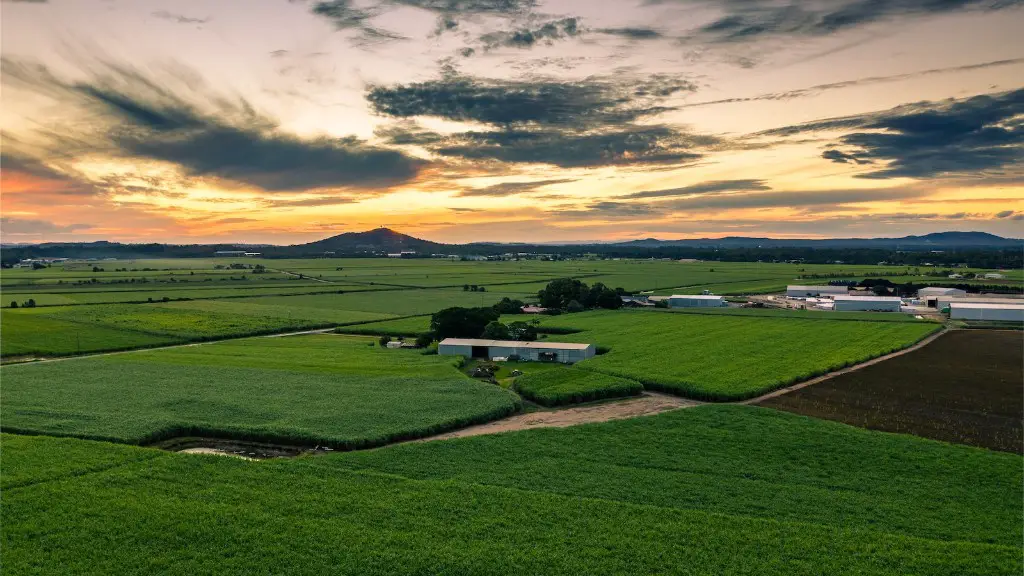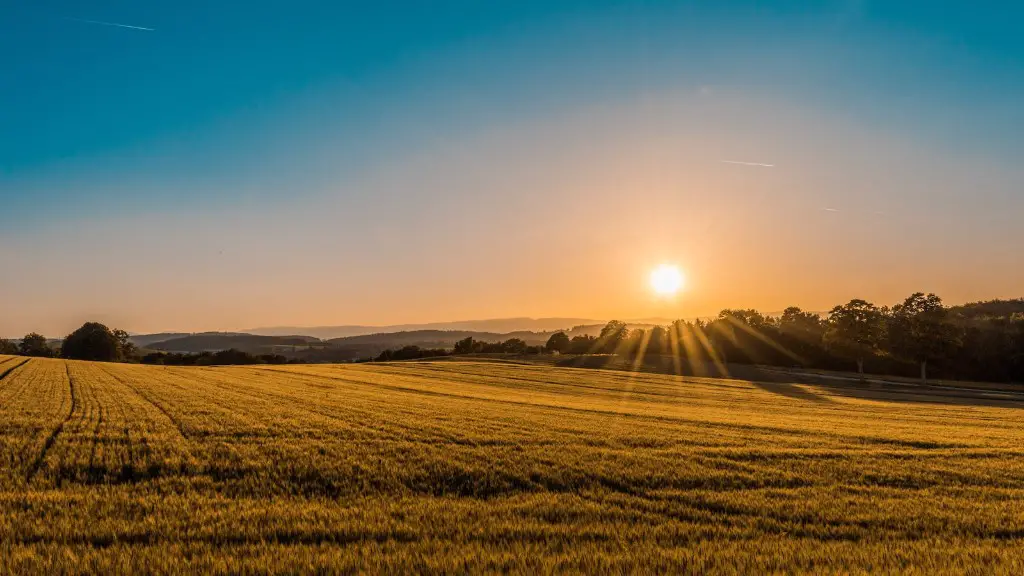Agriculture is a cornerstone of the New Zealand economy, contributing substantially to gross domestic product (GDP) and the country’s overall economic welfare. According to Statistics New Zealand, the contribution of agriculture to the nation’s GDP over the last decade has remained relatively stable at around 6%. This result is surprising, given the rapid changes in global agricultural markets, with primary sector exports increasingly being targeted to high-value products, services, technology and innovation.
Despite this relatively stable percentage spotlight, New Zealand’s agricultural sector is still in a strong position in the global economy. Thanks to the ever-growing demand for dairy, meat and other primary sector products, New Zealand is the third-largest exporter of agricultural products in the world. This gives the nation significant economic leverage, as it can take advantage of current market fluctuations to ensure financial stability in the years to come.
The stability of agriculture’s GDP percentage in New Zealand is down to a number of factors. Notably, increasing public investment in the primary sector has seen technological advancements, allowing farmers to focus on value-adding within their industry. This, coupled with a focus on environmental sustainability, means that primary sector exports are ultimately of higher quality. Furthermore, government policy and other incentives have created a more favourable environment for farmers in terms of regulation and price fluctuations.
Looking ahead, it is expected that New Zealand’s agricultural sector will remain a major contributor to GDP, with some estimates predicting even higher yields over the next several years. With international demand for the nation’s agricultural products continuing to grow, the sector will be well-positioned to reap the rewards of this demand, and continue to be a major source of national economic growth.
Future Opportunities
As the need for agricultural products continues to increase, so too do the prospects for New Zealand’s agricultural sector. With technological advances and increased investment from both public and private sources, the nation is well-positioned to take advantage of the upcoming global opportunities for primary sector exports. This presents a significant opportunity for New Zealand to become an even more viable competitor in global agricultural markets, and, in doing so, further contribute to the nation’s economic growth.
Furthermore, with the public’s focus shifting away from large-scale mono-crops to more diversified food production, New Zealand is well-placed to capitalise on the current global trend of increased demand for high-value agricultural products. Indeed, the nation has already seen profound success with the growth of niche food exports such as manuka honey, apples and wine, and will be in a prime position to further leverage its expertise in this area in the years to come.
Finally, New Zealand’s agricultural sector has the potential to be one of the main drivers of the nation’s economic transformation. Increased technological advancements, diversified production and new export opportunities present the sector with the perfect opportunity to become an even larger part of New Zealand’s economy, and a major contributor to economic growth and development over the coming years.
Environmental Sustainability
In addition to being a key economic driver, agriculture has an important role to play in terms of environmental sustainability. As New Zealand continues to ramp up its production of primary sector exports, its agricultural sector must bear in mind the potential impacts of intensive farming, and consider ways to mitigate this. This is especially true in terms of water management, with increased public pressure on farmers to reduce their environmental impact.
However, the nation is already beginning to embrace new technologies and practices that can make agriculture more sustainable, such as precision farming technologies and more efficient irrigation systems. Such technological advances have the potential to not only reduce environmental impacts, but also boost the productivity and profitability of farms. This can be seen in the success of some of New Zealand’s most innovative and sustainable farms, who have been able to mitigate the risks posed by intensive farming and continue to produce quality agricultural products for domestic and international markets.
Another aspect of agricultural sustainability is animal welfare. With the sector under increased public scrutiny, it is important for farmers to adhere to best practices in order to ensure the welfare of their livestock. This is especially pertinent in terms of dairy farming, where New Zealand farmers are seeking to produce quality milk and dairy products with minimal harm to animals. Accordingly, industry standards and regulations need to be in place in order to ensure that farmers are able to meet the highest possible welfare standards for their livestock.
Finally, it is important to acknowledge the role of the public in promoting sustainable and efficient agricultural practices. With the rise of the public’s awareness of environmental issues, it is critical that farmers collaborate with the local community in order to ensure that their agricultural practices are not only up to standard, but also yield results which are beneficial to all stakeholders.
Pros and Cons of Intensive Farming
As previously noted, agriculture is rife with pros and cons when it comes to intensive farming. On the one hand, intensifying agricultural production through the use of modern technology and practices has the potential to provide higher yields, greater efficiency and cost savings, thereby creating a competitive and profitable industry. On the other hand, intensive farming carries the risk of environmental damage and animal welfare concerns, with some experts noting that too much intensification can lead to land degradation and increased pollution.
In light of the potential risks posed by intensive farming, it is important that New Zealand’s farmers are aware of the potential consequences, and take steps to mitigate these. This includes, but is not limited to, adhering to environmental and animal welfare regulations, as well as investing in new technologies and practices to reduce over-farming and land degradation. Such initiatives, when implemented responsibly, can help ensure that the nation’s agricultural sector remains a major contributor to GDP, without jeopardising the environment and animal welfare.
In addition, farmers must also be aware of the various market risks posed by different production practices. For example, some experts argue that an over-reliance on intensive farming methods can result in over-dependence on external input sources, or even market fluctuations which can harm the profitability of a farm. As such, it is essential that farmers utilise a diverse range of production practices in order to ensure that the sector is not overly reliant on external factors, and is shielded from potential market setbacks.
Finally, it is essential that farmers take a proactive approach when it comes to monitoring their environmental and animal welfare performance. This includes utilising data to track the impact of their practices, as well as undertaking risk assessments to identify potential issues before they arise. By taking a proactive approach to production, New Zealand’s agricultural sector will be in a strong position to remain a major contributor to GDP, while also mitigating the risks of intensive farming.
Summary and Conclusions
In summary, agriculture is an integral part of New Zealand’s economy and contributes significantly to GDP. Despite the rapid changes in global agricultural markets, the sector’s contribution to GDP has been comparatively stable for the last decade, with projections for increases in the near future. This stability is thanks to increased investment and advances in technology which have enabled farmers to focus on value-adding and sustainability measures, as well as government policies which have created a more favourable environment for agriculture.
Looking ahead, the sector has vast potential for growth, due to the increased international demand for high-value primary sector exports. This presents an opportunity for the nation to become more competitive in theglobal agricultural markets, while also maintaining compliance with environmental and animal welfare standards. It is vital, however, that New Zealand’s farmers are aware of the risks posed by intensive farming, and take steps to mitigate these in order to ensure that the sector remains an integral part of the national economy.



